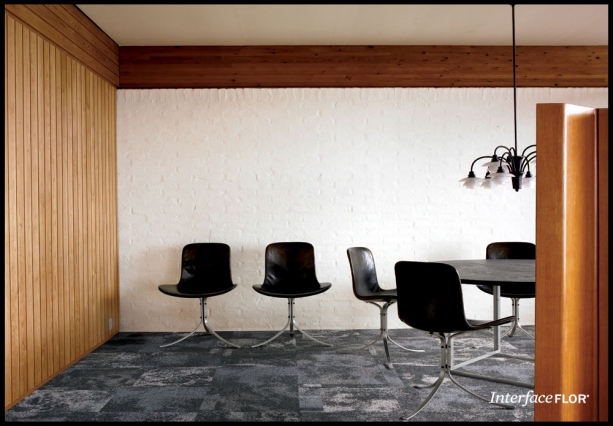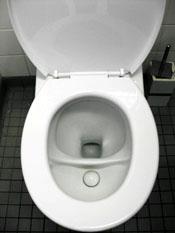Interface has won the NSW Government 2012 Green Globe Award for Excellence in Sustainability.
The Green Globe Awards recognise environmental excellence, leadership and innovation in NSW.
The winners were announced last week by the NSW Minister for the Environment, Robyn Parker, at NSW Parliament House.
The award for Going Beyond Environment Standards applauds Interface’s commitment to be the first fully sustainable company by 2020 – Mission Zero.
Australia’s largest manufacturer of commercial modular carpet, Interface launched its Go Beyond campaign this year, including the company’s aim of becoming the most environmentally transparent manufacturer in Australia.
www.interfacegobeyond.com.au

A recent innovation has been the launch of Australia’s first 100 per cent recycled nylon yarn carpet tile, “Raw”.
NSW small and large businesses, individuals, state and local government and community organisations who nominated for the 2012 awards.
This year, the 15 Green Globe Award winners were chosen from a short-list of 48 finalist that were recognised as the most outstanding entries across the state.
Built Environment Sustainability Award
The Built Environment Sustainability Award was awarded to the GPT Group, GPT Headquarters: a new way of working.
The GPT Group’s new headquarters showcases the Group’s position as a leader in the creation of innovative and sustainable built environments.
In 2009, GPT launched its reinvigorated business strategy with a first step of creating a new work environment in the iconic Harry Seidler-designed MLC Centre that would respond to the needs of GPT’s people today and into the future. The result is an example of what can be achieved in an existing building through clever sustainable design.
Employees were engaged from the outset in the new design, which ensured the diverse needs of GPT’s workforce were met.
The new workplace integrates new technology, activity-based working and sustainability for its entire workforce. By replacing the traditional dedicated desk with clusters of collaborative work areas, GPT has moved from occupying five floors to three floors.
Environmental Innovation Award
The Environmental Innovation Award went to the UTS: Institute for Sustainable Futures, Sustainable Sanitation, Urine Diversion.

The sustainable sanitation project has explored the viability of capturing and reusing urine as a fertiliser in agricultural production.
The project was the first trial of a urine diversion (UD) system in an Australian institutional setting and examined the barriers and opportunities for urine capture and reuse.
Traditional sanitary systems are both water and energy intensive in collecting, transporting and treating sewage. On the other hand, UD systems use less water and energy and reduce the costs of transporting and treating sewage. UD systems capture and separate urine in special toilets and waterless urinals, store it to kill off bacteria and then reuse the nutrients in the urine as fertiliser.
Importantly, UD systems have the potential to provide phosphorus rich fertiliser for agriculture. As the world’s mineral phosphate deposits are rapidly declining, diverting urine to agriculture makes good sense. Removing the phosphorus from wastewater also makes it cheaper and easier to treat wastewater.
ISF worked with a number of key stakeholders including Lend Lease, Sydney Water, Caroma and Arup to develop Australian design guidelines for UD systems in multi-storey buildings.
Lend Lease’s design team is currently collaborating with ISF, Sydney Water Corporation and Caroma to design urine diversion systems for its Barangaroo development and the Broadway Engineering Building at UTS, as an approved sanitary waste system that complies with Australian Standard 3500 and the new Building Code of Australia.
Importantly, comprehensive data from the UD trial is now being shared with others including Yarra Valley Water and the Sustainable Sanitation Alliance.
The project is a leading example of industry collaboration and breakthrough research that will help transform industry thinking on sustainable sanitation.

